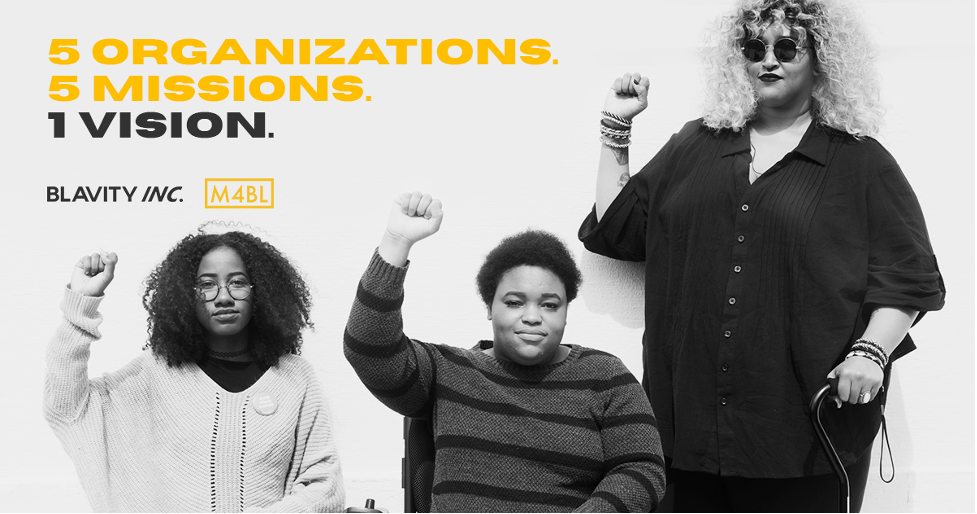An ecosystem of organizations, the Movement for Black Lives (M4BL) has been hard at work in communities across the country creating opportunities, providing resources, pushing for social change and more. Since coming together in 2015, the national network boasts more than 150 organizations dedicated to helping Black communities learn, organize and, most importantly, take action.
After such a tumultuous year, its work has become more vital than ever, and it includes initiatives that touch on everything from Black farmers to inequalities in the cash bail system — all powered by the tireless efforts of M4BL members.
Within the M4BL network, these groups are working to create transformative change in their local communities and at the federal level so that all Black people can live safe, full lives.
Take a beat and check out five dope organizations fighting for our communities every single day.
Solutions Not Punishment Collaborative (SNaP Co) | Atlanta, Georgia
Led by a collective of Black trans and queer leaders, this Atlanta-based organization was founded to fight police brutality and the criminalization of sex workers, as well as to address the expansion of prisons and jails. With a mission to protect the dignity and rights of Black trans workers, SNaP Co. has become a haven for our trans family and others experiencing systemic oppression in Atlanta.
For those local to the area, take the Survey for a Safer Atlanta! To donate to this organization, visit here.
Carolina Federation | Dunham, North Carolina
With a political system fractured by partisanship and political agendas, the Carolina Federation has worked to create a bold framework for voter engagement in North Carolina. This statewide organization is a diverse group of rural and urban people interested in bettering North Carolina for everyone.
With a focus on long-term community investment and political strategizing and an aim to diversify North Carolina’s leadership, this group is planting seeds to develop a new generation of activists and community leaders. Visit here to learn more or donate.
Metcalfe | Milwaukee, Wisconsin
Founded in 2012 by five Metcalfe Park residents, the small collective has grown into Metcalfe Park Community Bridges, an organization dedicated to improving the entire city of Milwaukee. It also serves as the site for the Building Neighborhood Capacity Program (BNCP), a federally-funded initiative created to revitalize the Metcalfe-area.
Support the Metcalfe community by donating to their Building Bridges program here.
Equity And Transformative Change (EAT) | Chicago, Illinois
An organization that grew directly from the people, Equity and Transformative Change (EAT) works to bring together formerly incarcerated and marginalized individuals in the Chicago area. With an emphasis on the disenfranchised, EAT works to organize voices and those not typically heard outside of the formal economy.
In addition to their activism throughout the community, EAT is also working to implement the Illinois BREATHE Act, legislation that would focus on police accountability and create funding for programs designed to reduce violence.
Support EAT by donating here.
National Black Food & Justice Alliance| National
A coalition of Black organizations, the National Black Food and Justice Alliance (NBFJA) develops Black leadership and organizes Black food and land ownership, all while amplifying the voices of communities looking to become sustainable. With resources and initiatives nationwide, they’ve assisted with injustices like the theft of land from Black farmers.
Visit here to learn more or support NBFJA.
The Movement for Black Lives network continues to excel at finding solutions to the systemic issues that impact Black people and all those impacted by systemic oppression. Learn how organizations throughout their network are working to improve our communities across America.
This editorial is brought to you in partnership with The Movement for Black Lives (M4BL).

